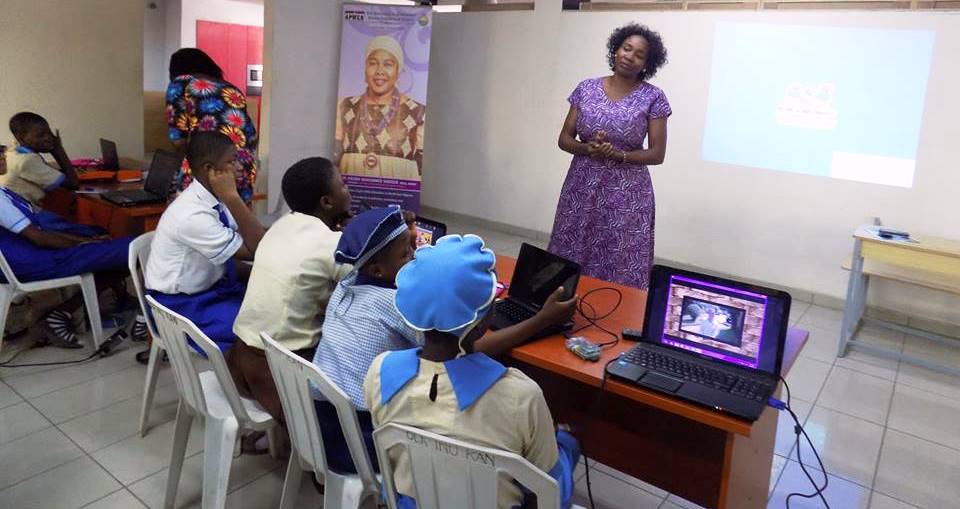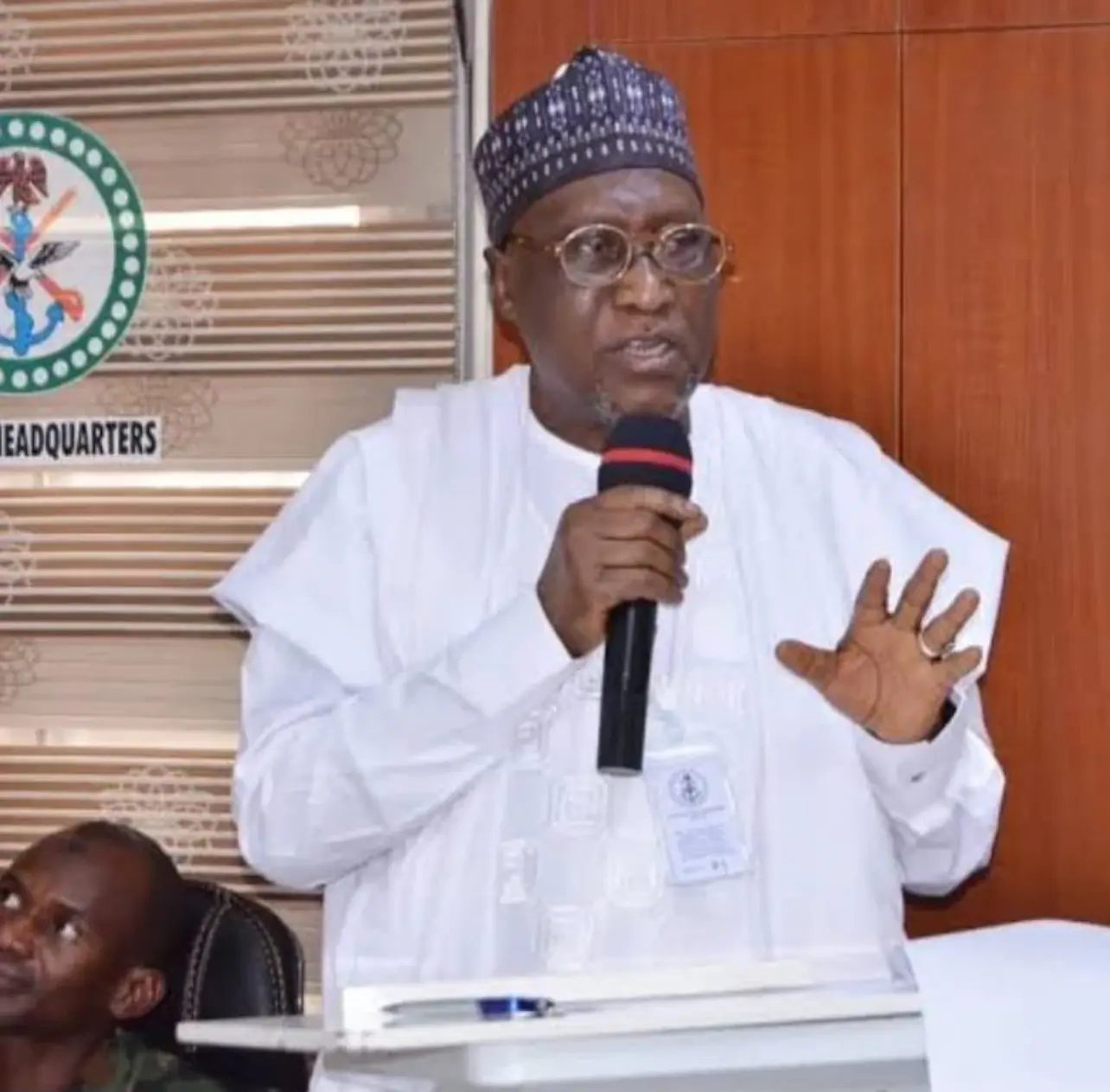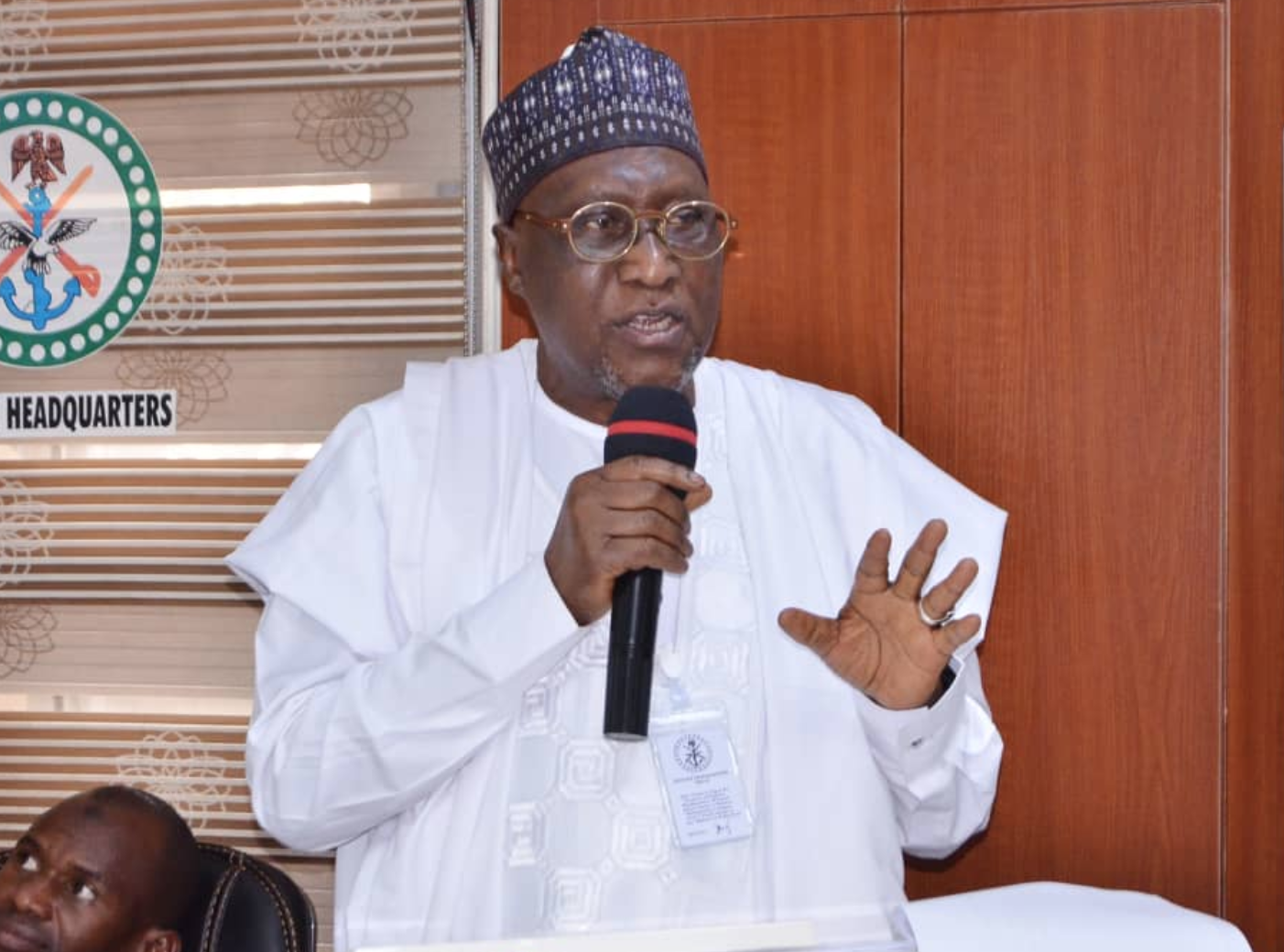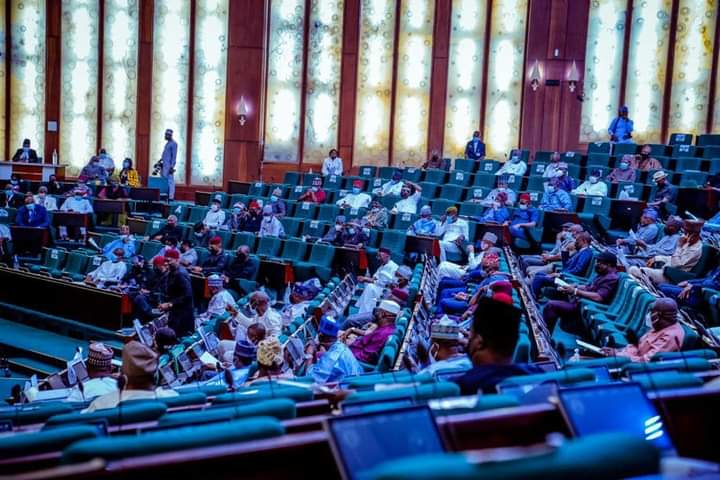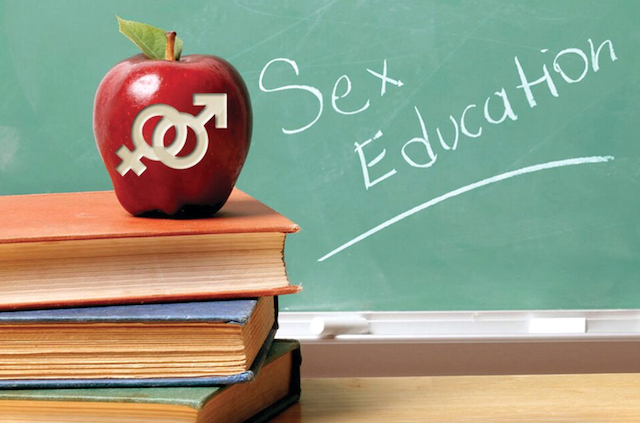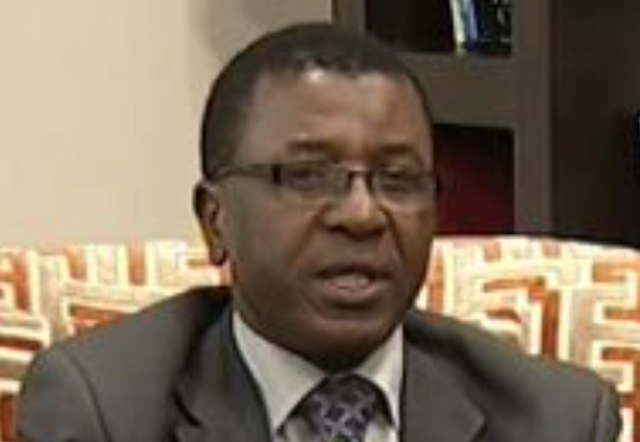Last week, a group of pro-choice NGOs staged a protest against the Hon. Minister of Education, Malam Adamu Adamu for directing the Nigerian Educational Research and Development Council (NERDC) to expunge the current immoral sex education taught in Nigerian schools from the school curriculum. Worried about the immoral content of sex education curriculum in Nigeria and the wrong method deployed in using it to corrupt impressionable secondary school and primary school pupils most of whom are in the age bracket of 5-14 years, the Hon. Minister had directed last week that the immoral sex education should be removed from the school curriculum and that the teaching of sex education should be left in the hands of parents who are the primary educators of their children and religious institutions which are the custodians of morals of young people. Rather than sexualize and damaging the character of our school pupils with a pernicious sex education, the Hon. Minister prefers that parents and religious institutions should teach sex education in order to safeguard the morals of our school pupils.
But the Hon. Minister’s directive has not gone down well with some pro-choice NGOs. Last week they issued a statement stating, among other things, that the Minister’s directive is a hindrance to progress in providing school pupils and teenagers with factual information and skills on teen safe-sex and reproductive health (otherwise known as abortion) that are necessary for young people to make rational decisions about their bodies. Also faulting the Hon. Minister on the said directive, a wife of a former State Governor, who over the years has gained notoriety as child safe-sex radical activist, has written a letter to the Hon. Minister stating, inter alia, that the Nigerian government should embrace the Comprehensive Sexuality Education (CSE) of the notorious pro-abortion foreign NGO called the United Nations Population Funds (UNFPA).
The government should just ignore the protesting pro-choice NGOs and the wife of the former State Governor. Under the so-called CSE which the wife of the ex-State Governor is prescribing to the government (I have a copy of it right in front me as I scribble this), school pupils in open classrooms are required to touch each other’s genital saying: “I like you”. The pupils are also expected to touch each other’s private parts and find out the differences in their respective private parts. For years now I have been following the corruption and sexualization of the Nigerian kids by the UNFPA. Under the youth peer sexuality education Training Guide/Toolkit, funded by the UNFPA and used in many public secondary schools in Nigeria, (which I also have in front of me at the moment), the students are told to share with other students with whom they feel more comfortable things like: “Your sexual fantasies (fantasies), “Your feelings about oral sex (oral)”, “Whether you enjoy erotic material (X), “Whether you have fantasized about a homosexual relationship (gay-fan),” “Whether you have had a homosexual relationship (gay-exp)”. On page 75 of the Guide, there is a condom relay race activity involving boys and girls. It instructs the peer leader to “Ask two volunteers (participants or co-facilitators) to hold the two penis models” and then to invite two teams to race to put the condoms on the models.
I remember that in 2014 the same UNFPA organized what it dubbed the third Family Planning Pre-Conference which was held at the Reiz Continental Hotel, Abuja. At that Conference, the UNFPA launched a condom-safe-sex campaign entitled, “No Hoodie No Honey”. This campaign was widely reported in the Nigerian media. The campaign was also posted on Twitter, Facebook and on other social media. The campaign was targeted at young Nigerian girls in the age bracket of 14-18. The campaign was aimed at supplying condoms and contraceptives to these young Nigerian girls and convincing them that “safe-sex” is their right and therefore they shouldn’t be ashamed to practice “safe sex” even if the different Nigerian cultures and religions teach otherwise. For example, one of the inscriptions on the No Hoodie No Honey roll-up stand posted on Twitter read: “Lets push for easy access to the female condom and that a woman may buy condoms without being shamed” First: the campaign was tainted by fraud and deception. While scientific evidence consistently shows that the condoms, which contain naturally-occurring holes, do not protect its user against infections and against HIV and rarely protect against unwanted pregnancy, the UNFPA fraudulently masquerades about the cities of Nigeria and giving the Nigerian youths the false hope that condoms protect from any misdeed.
It beats the imagination that the UNFPA and others are corrupting Nigerian children with immoral CSE under the watch of the government. The American College of Pediatricians has said that CSE is one of the greatest assaults on the health and innocence of children because, unlike traditional sexuality education, CSE highly and explicitly promotes sexual promiscuity and high-risk sexual behaviors among children and teenagers. CSE programs have an almost obsessive focus on teaching children how to obtain sexual pleasure in various ways. (Please visit this site https://youtu.be/6yTvdCHgEHQ) and view the 11 minute video to see evidence of the harmful elements of CSE . The video provides just 15 harmful elements typically found in CSE curricula. Since each of these 15 harmful elements has the potential of causing long-term negative effects on the health and well-being of children, having even one of these elements should be reason enough to disqualify a CSE program from being taught to children in our schools. CSE harms children in the following ways and therefore should be banned in our schools. Sexualizes children; teaches children to consent to sex; normalizes anal and oral sex: promotes homosexual/bisexual behavior; promotes sexual pleasure; promotes solo and/or mutual masturbation; promotes condom use in inappropriate ways; promotes early sexual autonomy; fails to establish abstinence as the expected standard; promotes transgender ideology; promotes contraception and abortion to children; promotes peer-to-peer sex education or sexual rights advocacy; undermines traditional values and beliefs; undermines parents or parental rights; refers children to harmful resources. These are not invented by me. Please visit: www.waronchildren.org and www.investigateippf.org)
Aside from the CSE, many textbooks used in Nigerian schools have been corrupted too with lewd matters. You may be well aware that in the last twenty years or so, classical English literature books and novels such as Macbeth, Julius Caesar, Weep Not Child, Things Fall Apart, Zambia Shall be Free, The Man Died, African Child, Akin the Drummer Boy, Mine Boy, The gods are not to blame and so forth have been removed from our school curricula and replaced with sex-related local English literature books containing lewd subject-matters to give the unsuspecting young school pupils the wrong impression that self-control is unnecessary and that casual sex makes them feel good; that they should engage in casual sex before marriage; that ‘safe sex’ is what to aim for in life provided that they don’t get pregnant. And if they do get pregnant they should procure abortion as soon as possible. It is unfortunate that we now live in a highly-sexualized society. And one of the negative consequences of this is the sexualisation of primary and secondary school pupils. At every turn — TV, music, movies, sex education in schools — pre-teen, teens, school pupils and teenagers are daily bombarded with the tragically misguided message borrowed from abroad that safe-sex in all deviant forms, LGBT1+, gay marriage, transgenderism, and bestiality are good for them and that the resultant outcome holds no dangers for them.
About 16 years ago, an NGO called the Concerned Mothers Association, Lagos, ace broadcaster Adesuwa Onyenokwe and others brought a law suit against the Lagos State government at the Federal High Court, Lagos over the sexualization of the Integrated Science curriculum to include the techniques of kissing, masturbation, breast enlargement, how to do abortion, how girls can sterilize themselves and be having sex without becoming pregnant and so forth I was one of the counsel for the plaintiffs in that suit. The lead counsel in the suit was Mrs. Sylvia Sinaba SAN (of blessed memory). I remember that when the matter was called in court, the judge, who happened to be a female, was completely stunned by the sexualized issues pleaded by the plaintiffs in their Statement of Claim. In her shock, she first took up the Statement of Claim, held it up momentarily in her right hand and queried, “What is this?”. “My Lord, these are what they are now teaching them in schools”, responded Mrs. Sylvia Sinaba SAN. Silence enveloped the courtroom. The judge was dumbfounded. Anyway, to cut the long story short, the matter was amicably resolved out of court. In the spirit of amicable settlement, the Lagos State government at that time yanked off the offensive portion of the Integrated Science curriculum although I suspect that by now it has been brought back into the curriculum.
Between from March 27 to 29 2017, I attended a Conference which took place at the Nigerian Institute of International Affairs, Victoria Island, Lagos,. One of the Speakers at that Conference was Ahmed Akanbi, a Muslim parent and a Lagos-based legal practitioner. Midway in his presentation, Ahmed did something which shocked most of the Conference attendees. He carefully dipped his hands into his handbag and brought out two English literature books containing some lewd subject-matters and showed them to the audience. He told us that the two books were recommended books for primary six pupils in the primary school attended by his daughter. The title of the first book authored by Oyekunle Oyedeji is: Tears of a bride, while the second book written by Queen O. Okweshine bears the title: Precious Child. According to Ahmed, his 9-year old daughter in Primary 6 came back home from school one day and engaged him in a conversation that bothered on some sex experiences. At first, Ahmed was utterly stunned that his 9 year old daughter was conversant with sex matters. But after he had regained his composure he asked his daughter where she learned about those sex experiences. It was then that his daughter opened her mouth and narrated to him how their school teacher has been using the aforesaid two books to teach them how to practice “safe sex” and how to gain sexual pleasure. Ahmed read to the hearing of the participants some sexy portions of the two books. The participants rose to their feet in utter shock.
Seven years ago, some Lagos-based NGOs also filed a law suit at the Federal High Court, Lagos against the Federal Ministry of Education and others over the smearing of the following textbooks used in many secondary schools in Nigeria- New School Chemistry for Senior Secondary Schools By: Osei Yaw Ababio; Revised by: L. E.S Akpanisi Herbert Igwe ; Modern Biology for Senior Secondary School By: Sarojini T. Ramalingam, revised by Lucy I Akunwa and J.BC Obidiwe and the New School Physics for Senior Secondary By: M. W Anyakoha PhD-with the following watermark inscriptions: “I know that My Mother is a harlot and that my Father is a Kidnapper”, “I am a son/daughter of a Harlot and kidnapper”, “I confess that my Family is bad, Evil, and a Disgrace to the Nation”, “My Parents Taught me how to love and smoke Indian Hemp, to kill and practice illegal things”. I was the leading counsel for the plaintiffs in the suit. Guess what happened thereafter? The publishers of the lewd textbooks came all the way from Onitsha to our law firm in Lagos to beg for amicable settlement of the matter out of court.
Even many English, Mathematics and Social Science textbooks used in many Nigerian secondary schools have been corrupted to include lewd matters in order to sexualize the young students. For instance, in Mathematics, a typical Maths question for primary school pupils is: “20 condoms + 5 condoms-2 condoms equals…”. At the moment in my little office, I have the latest lewd-textbooks or sexualized textbooks used in corrupting our secondary school pupils in Nigeria. They include: Basic science Junior Secondary School Razat Publishers, 2018 edition, (for JSS3). Open pages 78 – 83 to see the harmful contents of the book- lesson on teenage pregnancy, types of abortions students can do, myths & facts about pregnancy, indoctrination of the pupils on terminology of unsafe & safe abortion, six ways to prevent pregnancy with contraceptives, how to enjoy ‘safe sex’ without pregnancy: false information on four types of abstinence of which none is the actual definition of abstinence to be promoted among adolescents. Active Basic Science, 2014 edition By Tola Anjorin, Okechukwu Okolo, Philias Yara, Bamidele Mutiu, Fatima Koki, Lydia Gbagu: See Pages 31- 34. Cry for Justice By Ademola Adefila; See Pages 60-61, 64-65, read the description of having sex and sexual experience. Stigma By Samson O Shobayo, See the pages. The book encourages sexual relationship with HIV patients; kissing. Basic Science & Technology for Junior Secondary School 1, 2 and 3: By W.K Hamzat, S. Bakare: See Pages 29- 47 Page 48-52 Page 64 Pages 67- 73 and Pages 86 of the three books which promote abortion, LGTB, masturbation and safe-sex with condoms. New Concept English for Senior Secondary Schools for SSS2, Revised edition (2018 edition) By J Eyisi, A Adekunle, T Adepolu, F Ademola Adeoye, Q Adams and, J Eto, See Pages 103- 104 that contain obscene and vulgar expressions such as : “small men always thinking small and acting small ”and these vulgar words:. “He swore by the grey hairs of his head and his penis…even by the cunt of his own mother”.
It is high time Nigerian parents woke up to their parental responsibilities. Parents are the primary educators of their children. They cannot shirk this responsibility under the excuse that they are working hard to eke out a living. Most social vices in Nigeria today are caused by failed parenting. We are in trouble in Nigeria. Failed parenting engenders failed political leadership. This is regrettable. The family institution, unarguably, is indeed the fundamental unit of society. The family is the natural context in which children imbibe those cherished values which form the superstructures for the building of our national ethos. Therefore parents should rediscover themselves and reinvigorate their respective families to enable them to parent their own children to be responsible citizens. Our civilization is imperiled when families are imperiled.
